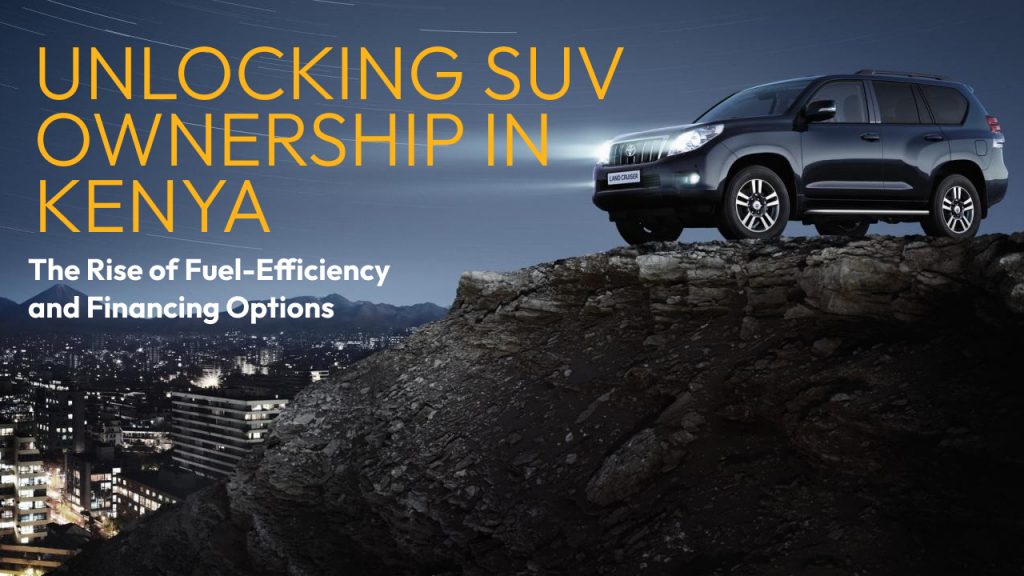Sport Utility Vehicles (SUVs), widely known for their robustness and off-road capabilities, have evolved into symbols of versatility and luxury on Kenya’s roads. These vehicles, characterized by their spacious interiors, commanding presence, and robust performance, have captured the imaginations of Kenyan drivers seeking both comfort and capability.
Despite their initial reputation as expensive status symbols often associated with politicians, SUVs have become increasingly popular among Kenyan motorists, driven by factors such as changing lifestyle preferences, fluctuating fuel prices, and the demand for versatile vehicles capable of traversing diverse terrains.
The Appeal of SUVs in Kenya’s Automotive Market
So why the shift to SUVs? Firstly, they offer a sense of safety and dominance on the road, providing drivers with a commanding view of their surroundings and instilling confidence in challenging driving conditions. Additionally, the spacious interiors and versatile cargo space of SUVs make them ideal for family outings, road trips, and commercial use, appealing to a wide range of consumers with diverse needs.
Furthermore, SUVs have also increasingly been seen as status symbols commonly referred to as ‘wenye nchi vehicles’, signifying success and prosperity in Kenya’s aspirational culture.
Navigating Fluctuating Fuel Prices: The Role of Fuel-Efficient SUVs:
In recent years, Kenya has witnessed fluctuations in fuel prices, influenced by global oil prices, currency exchange rates, and domestic taxation policies. These fluctuations have had a significant impact on the purchasing decisions of Kenyan motorists, many of whom are increasingly prioritizing fuel efficiency when choosing a vehicle.
Fuel-efficient SUVs have emerged as a compelling choice for Kenyan drivers seeking to mitigate the impact of volatile fuel prices on their transportation expenses. Models such as the Toyota RAV4 Hybrid, Honda CR-V, and Mitsubishi Outlander PHEV offer impressive fuel economy without compromising on performance or utility, making them attractive options for cost-conscious consumers.
By opting for fuel-efficient SUVs, Kenyan motorists can enjoy the benefits of owning a versatile and capable vehicle while minimizing their fuel expenses over the long term. Additionally, the adoption of hybrid and plug-in hybrid technologies in SUVs represents a step towards environmental sustainability, aligning with Kenya’s commitment to reducing carbon emissions and promoting clean energy alternatives in the transportation sector.
Conclusion
As SUVs become more accessible to ordinary “mwananchi”, auto-financing has been a major factor driving this trend. Despite fluctuating fuel prices, the demand for fuel-efficient SUVs is also rising.
Autochek Kenya has been at the forefront of ensuring affordable vehicle ownership by offering up to 70% financing and flexible repayment terms of up to 3 years, making SUV ownership achievable for more Kenyans.
This accessibility not only empowers economically but also fosters the growth of Kenya’s automotive sector. With sustainable technologies and inclusive financing, the vision of eco-friendly SUVs dominating Kenya’s roads is now visibly within reachTo view various SUV financing options, visit www.autochek.africa today.
